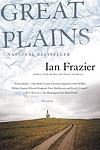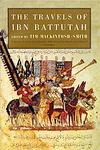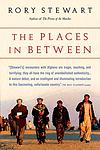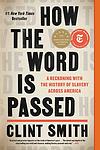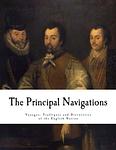The Greatest "History, Travel" Books of All Time
Click to learn how this list is calculated.
This list represents a comprehensive and trusted collection of the greatest books. Developed through a specialized algorithm, it brings together 300 'best of' book lists to form a definitive guide to the world's most acclaimed books. For those interested in how these books are chosen, additional details can be found on the rankings page.
Genres
The category of "History" in books refers to the study and interpretation of past events, societies, and cultures. It encompasses a wide range of topics, including political, social, economic, and cultural developments, as well as the lives of individuals and groups who have shaped the course of history. History books can be written from various perspectives and may focus on specific time periods, regions, or themes. They aim to provide readers with a deeper understanding of the past and its impact on the present.
The "Travel" category of books encompasses a wide range of literature that focuses on exploring new places, cultures, and experiences. These books can be memoirs, guidebooks, travelogues, or even fiction that takes the reader on a journey to a different part of the world. The genre is characterized by its emphasis on adventure, discovery, and personal growth, as well as its ability to transport readers to far-off lands and immerse them in new and exciting cultures. Whether you're looking for inspiration for your next trip or simply want to explore the world from the comfort of your own home, the Travel category has something for everyone.
Countries
Date Range
Reading Statistics
Click the button below to see how many of these books you've read!
Download
If you're interested in downloading this list as a CSV file for use in a spreadsheet application, you can easily do so by clicking the button below. Please note that to ensure a manageable file size and faster download, the CSV will include details for only the first 500 books.
Download-
1. Homage to Catalonia by George Orwell
The book is a personal account of the author's experiences during the Spanish Civil War, specifically his time with the POUM (Partit Obrer d'Unificació Marxista) militia in Catalonia. He provides an in-depth look at the social revolution that took place, the daily life of a soldier, the political infighting and betrayals among the Republican factions, and his eventual disillusionment with the cause he initially supported. The book is both a war memoir and a detailed analysis of a complex political situation.
-
2. Black Lamb and Grey Falcon by Rebecca West
"Black Lamb and Grey Falcon" is a comprehensive and detailed travelogue of Yugoslavia, penned by a British author during the brink of World War II. The book beautifully interweaves history, politics, culture, and personal experiences to paint a vivid picture of the Balkan region. It also serves as a profound reflection on the impending war and the author's concerns about the rise of fascism in Europe, making it not just a travel book but also an essential historical document.
-
3. Facundo by Domingo Faustino Sarmiento
"Facundo" is a socio-political critique and historical account of Argentina during the first half of the 19th century. The book examines the life of the gaucho, Facundo Quiroga, who becomes a powerful and ruthless warlord, illustrating the destructive effects of caudillismo (military dictatorship) on society. The author uses Quiroga's life to delve into broader themes such as the struggle between civilization and barbarism, the need for education, and the dangers of unchecked political power.
-
4. Tristes Tropiques by Claude Lévi-Strauss
"Tristes Tropiques" is a blend of autobiography, travel literature, and anthropology by a renowned scholar. The book is a recounting of the author's travels and anthropological work, primarily in Brazil, in the 1930s. It provides a critical and philosophical reflection on his experiences and observations, offering insights into indigenous tribes like the Nambikwara and Tupi-Kawahib, and exploring themes of cultural change, the nature of anthropology, and the author's own disillusionment with Western civilization.
-
5. Into the Wild by Jon Krakauer
This striking narrative non-fiction tells the real-life story of a young man who turns his back on society to live in the Alaskan wilderness. Despite a privileged background and a promising future, he donates his savings to charity, abandons his car and most of his possessions, and embarks on a journey into the wild. His solitary existence in the wild, his struggles for survival, and his untimely death provide a profound exploration of the allure of wilderness and the human yearning for solitude and self-discovery.
-
6. Journals by Meriwether Lewis, William Clark
This book is a compilation of the detailed journals kept by two explorers during their expedition across the American West, from 1804 to 1806. The journals provide a first-hand account of their encounters with Native American tribes, their observations of new plant and animal species, and the challenges they faced while traversing uncharted territories. The explorers' writings not only offer insights into their historic journey but also serve as a valuable resource for understanding early 19th-century American history and the country's westward expansion.
-
7. Great Plains by Ian Frazier
"Great Plains" is a travelogue that takes readers on a journey through the vast expanse of the American Great Plains, exploring its history, geography, and culture. The author travels from North Dakota to Texas, delving into the history of Native Americans, pioneers, and outlaws. The book provides a detailed account of the region, its people, and its significance in shaping the American West, offering a vivid portrait of the landscape and its influence on the country's identity.
-
8. Germania by Cornelius Tacitus
"Germania" is a historical and ethnographic work that provides a detailed description of the lands, customs, and tribes of the Germanic people in the first century AD. The author, a Roman historian and senator, offers a comprehensive account of the geography, anthropology, social institutions, and military practices of the Germanic tribes, often comparing their culture and values to those of the Romans. The work is considered a valuable source of information about the ancient Germanic tribes, despite its possible biases and inaccuracies.
-
9. Travels (Ibn Battúta) by Ibn Battúta
The book is a comprehensive travelogue written by a 14th-century Moroccan scholar and explorer who traveled extensively across the known world, from Africa to the Middle East, India, China, and Europe. The author shares his observations and experiences in vivid detail, offering unique insights into the diverse cultures, religions, and societies he encountered during his journeys. His accounts serve as a significant historical record of the world during the Middle Ages, providing a firsthand perspective of life during that period.
-
10. Days In The Caucasus by Banine
"Days In The Caucasus" is a captivating memoir that follows the personal journey of a young woman living in the Caucasus region during the early 20th century. The author beautifully recounts her experiences growing up in a multicultural society, filled with vivid descriptions of the diverse landscapes, traditions, and people she encounters. From her childhood adventures to her first love, the author provides an intimate glimpse into a world on the brink of change, capturing both the joys and challenges of life in the Caucasus.
-
11. Great Heart by James West Davidson, John Rugge
"Great Heart" is a riveting historical account of the 1903 expedition across Labrador, one of the most inhospitable regions in North America. The book details the journey of four men and their struggle for survival against the harsh elements. The narrative is enriched with the explorers' own words, taken from their journals, giving readers an intimate look into their extraordinary adventure. The book is a testament to the human spirit and the will to survive, even in the face of insurmountable odds.
-
12. The Places In Between by Rory Stewart
"The Places In Between" is a memoir by Rory Stewart about his journey on foot across Afghanistan in 2002, shortly after the fall of the Taliban. He travels from Herat to Kabul, encountering a variety of people and landscapes along the way. The book provides a unique insight into the culture and history of Afghanistan, as well as the challenges faced by the country in the aftermath of war. Stewart's writing is both lyrical and informative, making for a compelling read.
-
13. Imperium by Ryszard Kapuscinski
"Imperium" is a gripping account of the author's travels through the Soviet Union during the final years of its existence. With a keen eye for detail and a deep understanding of the complexities of power, the author delves into the lives of ordinary people and high-ranking officials alike, revealing the oppressive nature of the Soviet regime and the profound impact it had on the lives of its citizens. Through vivid descriptions and insightful observations, the book offers a compelling narrative that sheds light on the inner workings of a crumbling empire.
-
14. Zeitoun by Dave Eggers
The book is a non-fiction account of a Syrian-American contractor named Zeitoun who decides to stay in New Orleans during Hurricane Katrina. Despite the chaos, he paddles around the city in a canoe, helping those he can. However, he is arrested and accused of looting, leading to a harrowing experience in prison. The narrative explores themes of family, survival, and the breakdown of civil liberties in times of crisis.
-
15. London Labour and the London Poor by Henry Mayhew
This book provides a comprehensive look into the lives of the working poor in 19th century London. The author offers an in-depth analysis of the socio-economic conditions of the time, detailing the struggles and hardships faced by the city's lower classes. The book includes interviews with a wide range of people, from street-sellers and chimney sweeps to beggars and thieves, offering a vivid and often grim picture of Victorian London. It is considered an important social document for its first-hand account of the realities of urban poverty.
-
16. The Valleys of the Assassins by Freya Stark
This travelogue presents the author's journey through the Middle East, specifically Persia, in the early 20th century. The narrative is a blend of history, geography, and personal exploration, as the author ventures into remote and dangerous regions, including the infamous "Valleys of the Assassins." The book provides a detailed and vivid account of the author's experiences and observations, bringing to life the landscapes, cultures, and histories of the regions she explores.
-
17. London: The Biography by Peter Ackroyd
This book is a comprehensive exploration of the city of London, from its ancient origins to the modern era. The author delves into the city's rich history, culture, and unique character, examining its evolution through various lenses such as crime, religion, commerce, education, and entertainment. The narrative is brought to life with fascinating anecdotes, vivid descriptions, and a wealth of historical detail, providing an immersive and engaging portrait of one of the world's most iconic cities.
-
18. The Return by Hisham Matar
"The Return" is a poignant memoir detailing a man's search for his father, who disappeared in Libya's political prison system. The narrative offers a deeply personal exploration of loss, memory, and homecoming as the protagonist returns to his native country after years of living in exile. The book also provides a profound insight into Libya's turbulent history, its oppressive regime, and the devastating impact of politics on individual lives.
-
19. The Invention Of Nature: Alexander Von Humboldt’s New World by Andrea Wulf
"The Invention of Nature" is a biographical account of Alexander von Humboldt, a 19th-century explorer, scientist, and naturalist who revolutionized the way we understand the natural world. Andrea Wulf chronicles Humboldt's travels across South America, his encounters with indigenous peoples, and his groundbreaking scientific discoveries that challenged prevailing notions of the natural world. Humboldt's ideas about interconnectedness and the unity of nature were ahead of their time and continue to influence environmentalism and conservation today. Wulf's book is a masterful exploration of one of history's most fascinating and influential figures.
-
20. How The Word Is Passed: A Reckoning With The History Of Slavery Across America by Clint Smith
"How The Word Is Passed" is a powerful and thought-provoking exploration of the legacy of slavery in America. Through a series of vivid and evocative essays, author Clint Smith takes readers on a journey across the United States, visiting sites that are deeply connected to the history of slavery and its aftermath. From Monticello to Angola Prison, Smith offers a nuanced and insightful look at the ways in which slavery has shaped our country and continues to impact our lives today. With a clear-eyed and compassionate approach, "How The Word Is Passed" is a must-read for anyone interested in understanding the complex and ongoing legacy of slavery in America.
-
21. The Exploration of the Colorado River by John Wesley Powell
This book is a firsthand account of the first U.S. government-sponsored passage through the Grand Canyon. The author, a one-armed Civil War veteran, and his team of nine men risked their lives to accomplish this feat in 1869. They faced dangerous rapids, food shortages, and potential attacks from Native American tribes. The narrative provides detailed descriptions of the geography, geology, and Native American inhabitants of the region, offering invaluable insights into the uncharted territory of the American West.
-
22. Journal of the Discovery of the Source of the Nile by John Hanning Speke
This book is a detailed account of an adventurous exploration to discover the source of the Nile River. The author, an English explorer, recounts his journey through Africa, detailing the various hardships, dangers, and cultural encounters experienced along the way. The narrative culminates in his discovery of Lake Victoria, which he claimed as the Nile's source. The book offers an intriguing look into 19th-century African exploration and the determination that led to one of the era's most significant geographical discoveries.
-
23. The Principal Navigations by Richard Hakluyt
"The Principal Navigations" is a comprehensive collection of English travel narratives from the 16th century, detailing a wide range of voyages and expeditions. The book includes accounts of journeys to the New World, Asia, and Africa, and features explorations by famous figures like Sir Francis Drake and Sir Walter Raleigh. The narratives provide a historical record of the era's discoveries, cultural encounters, and colonial endeavors, giving readers a unique insight into the period's maritime exploration and its impact on the world.
-
24. Incidents of Travel in Yucatan by John Lloyd
This book is a detailed and intriguing exploration of the Yucatan Peninsula, capturing the author's journey through the region in the 19th century. The narrative provides a comprehensive account of the local Mayan culture, architecture, and archaeological sites, including the ruins of ancient civilizations. The author's keen observations and descriptions bring to life the landscape, flora, fauna, and the everyday life of the people, offering a vivid historical perspective of the Yucatan.
-
25. Life in the Far West by George Frederick Ruxton
"Life in the Far West" is a vivid account of the early American frontier, highlighting the lives of trappers and traders in the Rocky Mountains. The narrative, based on the author's own experiences, provides detailed descriptions of the rugged lifestyle, the diverse characters encountered, and the often dangerous and violent events that occurred. It also offers an insightful look into the interactions between the settlers and the native tribes, making it a valuable historical resource.
Reading Statistics
Click the button below to see how many of these books you've read!
Download
If you're interested in downloading this list as a CSV file for use in a spreadsheet application, you can easily do so by clicking the button below. Please note that to ensure a manageable file size and faster download, the CSV will include details for only the first 500 books.
Download





